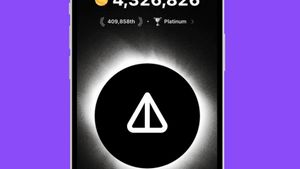
JAKARTA - In an effort to facilitate cross-border transactions without a hitch, the International Monetary Fund (IMF) plans to create a global central bank digital currency system (CBDC). IMF Implementing Director Kristalinaturva announced the intention at a conference of the African central bank in Morocco on June 19.
According to a Cryptoslate report, the IMF supports the development of various CBDC projects by central banks around the world. The organization believes that central banks need to develop their own digital currencies to counter cryptocurrency threats.
In June, about 10 countries almost reached the CBDC launch stage, while more than 100 countries were in various stages of development. However, most CBDC projects currently only focus on creating a digital version of the national fiat currency, with a limited level of interoperability. Some projects that allow cross-border payments involve only a few neighboring countries.
관련 항목:
She stated that the central bank should prioritize global interoperability and develop a regulatory framework that is common for digital currencies. According to her, CBDC should not only focus on domestic use, because countries will miss the potential if they do not use it optimally.
In addition,ELova also highlighted that cryptocurrencies are speculative and unsafe. According to him, cryptocurrencies that do not have real world assets as their support should not be considered as safe investments. This statement includes almost all existing cryptocurrencies, because the majority do not have supporting assets.
The IMF hopes that with the global CBDC system, cross-border transactions will become more efficient and well-connected between countries. The IMF also encourages central banks to cooperate in creating common standards that will increase the trust and adoption of digital currencies in the future.
The English, Chinese, Japanese, Arabic, and French versions are automatically generated by the AI. So there may still be inaccuracies in translating, please always see Indonesian as our main language. (system supported by DigitalSiber.id)















